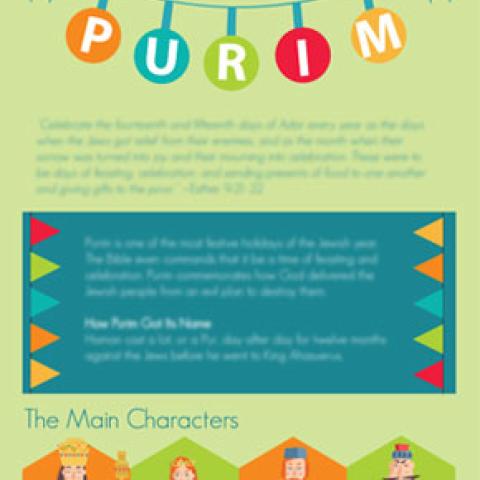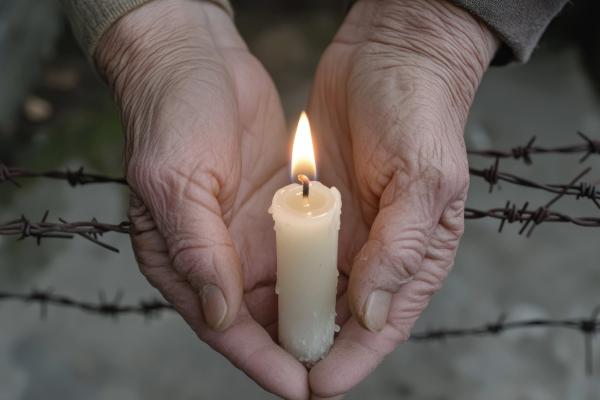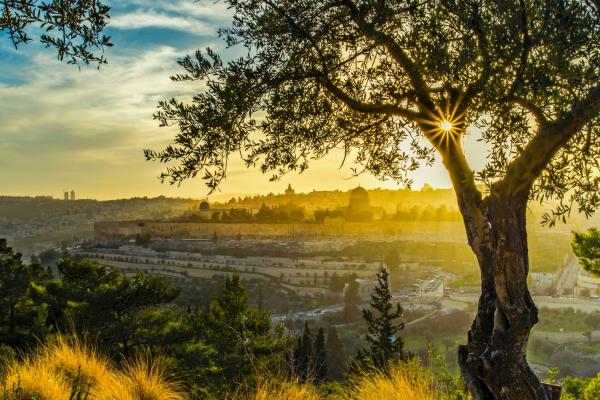Have you ever been in exactly the right place at exactly the right time to be a part of something great? Maybe it was someone else who was there at just the right moment for you. They came to your rescue just when you needed it, saving the day, solving the problem, turning bad circumstances to good. At times like these, you know God is looking out for you and stepping in on your behalf. God intervenes for His people in both small and grand ways – sometimes really grand ways.
That’s how it was for the Jewish people among the Diaspora when Esther came along. An orphaned maiden, she lived with Mordecai, her cousin and adoptive guardian, at the time when King Ahasuerus ruled over the fifth-century B.C. Jewish people. The Jews were dispersed in a kingdom that stretched from Turkey into Eastern Europe and from Ethiopia into India.
Queen Vashti displeased the king, so he banished her from the throne and conscripted beautiful maidens from his kingdom to undergo twelve months of beautification. From them, the king would choose his next queen. Esther was among them and kept her Jewish heritage a secret. When the time came for the king to select his queen, he chose Esther. Still, she did not disclose her Jewishness.
Mordecai learned of a plot to kill the king and told Esther. Esther, in turn, informed the king in Mordecai’s name, thus saving the king’s life. The would-be murderers were hanged, and the incident was recorded in the kings’ Book of Chronicles.
After these events, the king promoted an official named Haman and commanded that everyone bow and pay homage to him. Mordecai refused because he could only bow before the one true God. Haman was enraged and set out to kill not just Mordecai but all the Jewish people in the kingdom. He convinced the king these people were a threat to his rule because of their undivided loyalty to God alone. King Ahasuerus gave Haman authority to “do with them as you please” (Esther 3:11), and Haman issued an irrevocable decree in the king’s name to kill all the Jews – young and old, men, women, and children – in one day.
When Mordecai learned of the coming slaughter, he sat at the king’s gate in sackcloth weeping and wailing. Esther sent word to find out what was troubling him. The servant relayed to Esther all that Mordecai had told him, including his appeal for Esther to go to the king and plead for her people.
Going before the king when not summoned meant death if the king did not extend his golden scepter to the one who dared such a thing, and Esther had not been summoned to the king for thirty days. When the servant relayed these words from Esther to Mordecai, Mordecai spoke a message that held warning, faith, and prophetic insight.
Mordecai warned: “Do not think in your soul that you will escape in the king’s household more than all the Jews” (Esther 4:13).
He trusted God, saying, “For if you remain silent at this time, relief and deliverance will arise for the Jews from another place,” and warned again, “but you and your father’s house will perish” (Esther 4:14a).
Then, Mordecai conveyed a message that echoes through the ages with some of the most inspirational insight to anyone in a position of influence or power. He said, “Who knows whether you have attained royal status for such a time as this?” (Esther 4:14b).
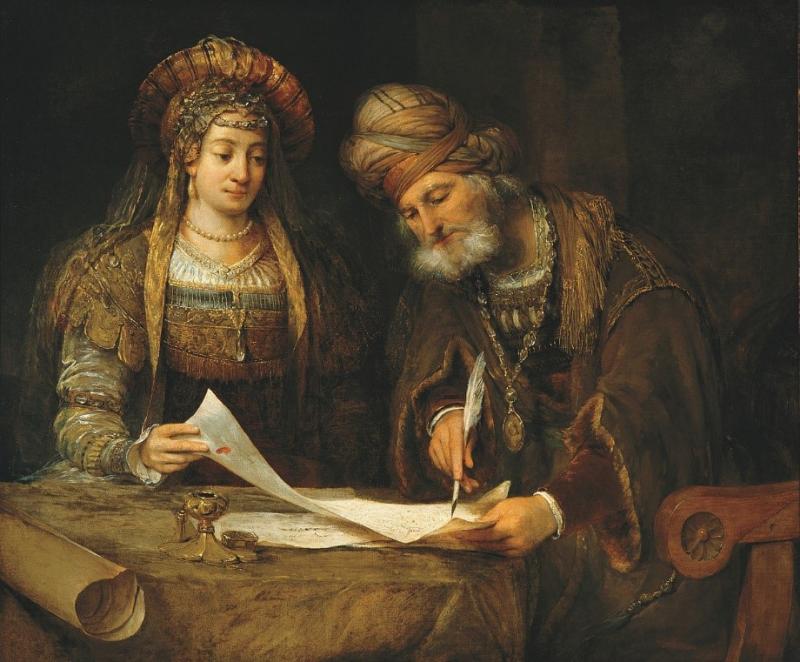
Mordecai’s words strengthened Esther. She told him to gather the Jewish people of the city to fast and pray for three days. She and her handmaids would do the same. With great courage and trust in God, she determined, “Afterward, I will go in to the king, even though it is not according to the law, and if I perish, I perish” (Esther 4:16).
The king extended his scepter and received Esther, asking her request. What calm and patience Esther maintained as she responded. She didn’t fall at his feet and beg the king to spare her life and her people. No, as a result of her time with God, Esther didn’t immediately blurt out her hidden identity and the threat to her and the Jews. When the king asked her what she wanted, she requested that he and Haman come to a banquet she had prepared for them that day.
At the banquet, the king asked again, “What is your request?” Esther then invited King Ahasuerus and Haman to a second banquet the next day where she would then tell her request.
That night, the king could not sleep. He summoned his servant to read to him from the Book of Chronicles where he learned that nothing had been done for Mordecai after he had saved the king’s life years earlier. Much to Haman’s humiliation, the king ordered him to escort Mordecai in great honor through the city and before the citizens.
At Esther’s banquet the following day, when the king asked her request, she replied, “Grant me my life.” Without yet revealing herself as Jewish, she explained that her people had been sold for slaughter and annihilation. The king was outraged and demanded to know who would presume to do such a thing. “The man is this wicked Haman!” Esther answered.
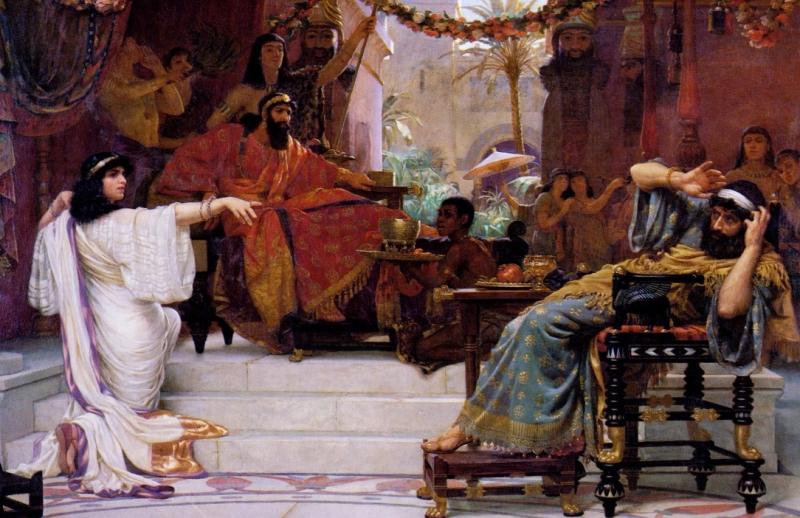
Haman was hanged on the gallows he had built for Mordecai. King Ahasuerus gave Esther Haman’s estate, over which she placed Mordecai in charge. The king gave Mordecai much authority in the land. Still, there was that irrevocable decree to kill the Jews on the appointed day.
Now Esther fell at the king’s feet and begged for her people. The king gave Esther and Mordecai instructions to write a new decree in whatever way seemed good to them, and to seal it with the king’s signet ring which he had given to Mordecai.
The new decree announced that “the king granted the right for Jews in every city to assemble themselves and to protect themselves – to destroy, kill, and annihilate any army of any people or province that might attack them” (Esther 8:11). When the day of destruction came, “No one was able to stand against them, for fear of them had fallen on all the peoples” (Esther 9:2) and “the Jews struck down all their enemies with the sword” (Esther 9:5).
“God is to us a God of deliverances,” says Psalm 68:20 (NASB). Throughout the history of Israel, God has saved His people from utter destruction time and time again. Purim (PUR-im) celebrates the time He elevated a young Jewish maiden to the position of queen “for such a time as this.”
Today, Purim celebrations include the reading of the book of Esther (the Megillah, (mah-GEE-lah), giving food gifts, giving to charity, costume parties, and lively plays reenacting the Purim story with cheers and boos for the heroes and villain. Whenever Haman’s name is spoken, the audience stomps their feet and rattles loud noisemakers called groggers (GRAH-gers) to blot out the name of Haman. One of the most traditional treats at Purim is hamentashen (HAH-men-tah-shen). These three-sided cookies are filled with jams, chocolate, or other tasty fillings and are said to resemble Haman’s hat. In Israel, these treats are called “Haman’s Ears.”
Get the Purim Infographic
Learn how to celebrate Purim as a follower of Jesus with this enlightening infographic!




